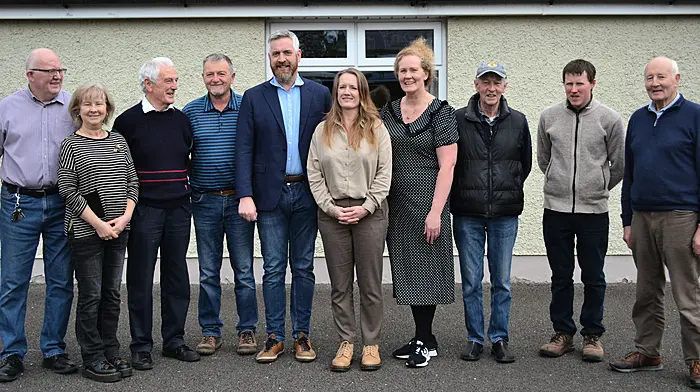JUST over a week ago we knew the danger. But we hoped our fears were misdirected. We hoped we would be wrong. God knows, the world had been talking about it for weeks. If not months, years.
Now Russia’s feared invasion of a sovereign state has come to pass.
A nation, which just a few days ago, was going about its normal everyday business, is now in a state of terror.
Just months after enduring the horror of Covid, once again shops, schools and factories are in shutdown.
People are barely able to function, attempting to stay safe by day and taking cover in basements, train stations, underground shelters, by night.
Thousands more have fled, millions left behind fear it’s too late to try.
Europe moved faster than we might have expected to isolate the Russian aggressor from financial resources, from participating in events, from doing business in the West, and also moved to help fleeing Ukrainians find direct and quick routes to safety.
In Ireland, we came out in our hundreds last weekend, attending rallies, fundraisers and collecting supplies and money for a nation under siege.
We began lighting up buildings and homes to show our solidarity with the beleaguered Ukrainians.
We rummaged to find Clare, Tipperary, Longford, Roscommon and Wicklow flags to repurpose them as symbols of unity with our Eastern European colleagues.
And, with every new day, we find new ways to show our support for this country that recalled its citizens from all corners of the globe to come and fight for its future.
We even watched their men – and women, too – leaving from our own airports, saying goodbye to partners and children, understandably feeling they had no option but to defend their native land.
Our neutrality means we cannot do much more, and while there have been some calls for our country to become more involved militarily, it is not at a time of war that we should make such a harsh and rash decision to change a status that has served us so well in the past.
But we can still send supplies, cash, and offer safe harbours to our friends in the East.
We can be proud that we have left no option unchecked in our bid to reach out to Ukraine.
Our own State postal service this week took the unusual step of issuing a statement which said that financial donations for Unicef and Red Cross Ukrainian crisis appeals could be made at any post office, Monday to Friday, and on Saturday mornings.
An Post and its postmasters have waived the fees normally payable for such transactions so the entirety of donations will go to the two charities.
An Post is also making arrangements to provide any displaced Ukrainian citizens in Ireland with current accounts to enable their everyday banking, as well as access to its address point service which provides a secure address for people who are homeless or living in temporary accommodation.
Along with the Communications Workers Union, the postal service has also put a truck and drivers at the disposal of the Irish Red Cross, to transport goods to Ukraine or a neighbouring country.
For now, however, the focus is on encouraging cash donations which can be used to buy specific emergency medical, food and personal supplies closer to where they are most needed.
Meanwhile, Dóchas, the Irish Association of non-governmental development organisations, also urged the public to make cash donations. Donating cash, rather than physical items, allows organisations to source relief items themselves, it pointed out.
They know we won’t be found wanting. We are a country that has its own difficult history, and a combined memory that allows us to empathise with others in similar situations. We cannot but reach out to those in their hours of need.
Because of our more recent history of helping the people of Chernobyl and neighbouring Belarus, we feel a little connection with this part of the world, too.
The terrifying news that the Russians had seized the controversial power plant a few days ago struck fear into the hearts of so many Irish people.
On Tuesday of this week, the United Nations voiced ‘grave concern’ and fear of another Chernobyl disaster after Russian troops were seen operating close to Ukraine’s largest nuclear power station.
Adi Roche, who has spent most of her adult life helping the victims of the 1986 power plant disaster, appealed to all warring factions not to allow the exclusion zone around the power plant to become a warzone. The potential for another nuclear disaster is unthinkable.
Coupled with Putin’s own threat regarding his ability to use nuclear weapons, the future for Europe looks very uncertain right now.
Russia, like the US and Nato, has a large arsenal of nuclear warheads that it maintains as a deterrent to an attack.
It helps to explain why the rest of the world is reluctant to raise the temperature in a conflict that could spiral out of control in days.
We can only hope that the measures and sanctions being employed by the West will starve this tyrant of political and financial oxygen and support and, ultimately, loyalty from his military and government allies.
The only other option is a very grim one indeed.








